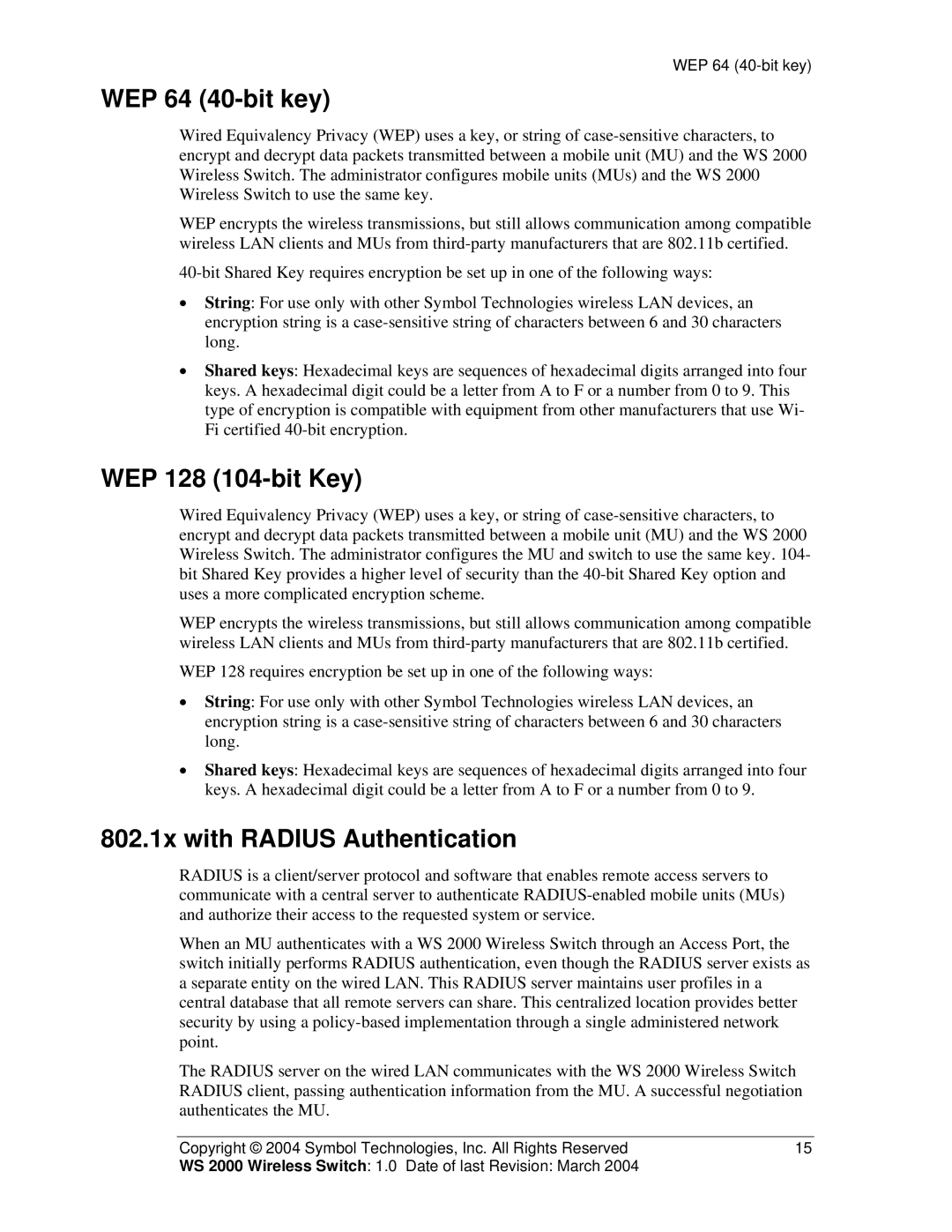WEP 64
WEP 64 (40-bit key)
Wired Equivalency Privacy (WEP) uses a key, or string of
WEP encrypts the wireless transmissions, but still allows communication among compatible wireless LAN clients and MUs from
•String: For use only with other Symbol Technologies wireless LAN devices, an encryption string is a
•Shared keys: Hexadecimal keys are sequences of hexadecimal digits arranged into four keys. A hexadecimal digit could be a letter from A to F or a number from 0 to 9. This type of encryption is compatible with equipment from other manufacturers that use Wi- Fi certified
WEP 128 (104-bit Key)
Wired Equivalency Privacy (WEP) uses a key, or string of
WEP encrypts the wireless transmissions, but still allows communication among compatible wireless LAN clients and MUs from
WEP 128 requires encryption be set up in one of the following ways:
•String: For use only with other Symbol Technologies wireless LAN devices, an encryption string is a
•Shared keys: Hexadecimal keys are sequences of hexadecimal digits arranged into four keys. A hexadecimal digit could be a letter from A to F or a number from 0 to 9.
802.1x with RADIUS Authentication
RADIUS is a client/server protocol and software that enables remote access servers to communicate with a central server to authenticate
When an MU authenticates with a WS 2000 Wireless Switch through an Access Port, the switch initially performs RADIUS authentication, even though the RADIUS server exists as a separate entity on the wired LAN. This RADIUS server maintains user profiles in a central database that all remote servers can share. This centralized location provides better security by using a
The RADIUS server on the wired LAN communicates with the WS 2000 Wireless Switch RADIUS client, passing authentication information from the MU. A successful negotiation authenticates the MU.
Copyright © 2004 Symbol Technologies, Inc. All Rights Reserved | 15 |
WS 2000 Wireless Switch: 1.0 Date of last Revision: March 2004 |
|
